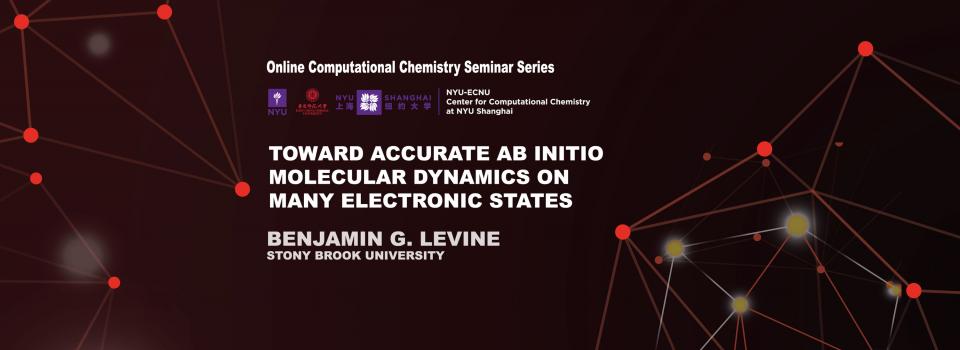
Zoom ID: 984 6384 2049
Passcode: 402887
- Join Via Zoom -
Abstract
Many important phenomena in chemistry and materials science involve nonadiabatic dynamics on large numbers of electronic states. Such phenomena arise, for example, in the study of hot carrier cooling in semiconductor nanomaterials, relaxation of plasmonic excitations, radiation damage to molecules and materials, and molecules under strong laser field excitation. However, accurately predicting dynamics on large numbers of electronic states remains a challenge for theoretical chemists. I will present recent theoretical developments towards an accurate and broadly applicable simulation method for modeling such dynamics. Specifically, I will present the development of the Ehrenfest with collapse to a block (TAB) method and a derivative designed for dense manifolds of states (DMS). The primary achievement of TAB-DMS is that it is able to accurately describe decoherence effects without requiring explicit computation of individual electronic eigenstates. I will also present Floquet time-dependent configuration interaction (F-TDCI), an electronic structure method for simulating electronic dynamics in a light field. I will demonstrate the accuracy of F-TDCI for describing dynamics under both continuous wave and pulsed excitation, as well as the high-performance of our GPU-accelerated direct configuration interaction implementation. I will also argue that, owing to its energy-conserving nature, F-TDCI is well suited for interfacing to nonadiabatic molecular dynamics methods such as TAB-DMS.
Biography
Benjamin G. Levine is a theoretical/computational chemist whose research focuses on developing and applying computational methods for simulating nonradiative processes—physical processes that convert electronic energy into vibrational energy—in molecules and materials. He earned a B.S. in Chemical Engineering and Ph.D. in Chemistry from University of Illinois at Urbana-Champaign in 2001 and 2007, respectively. After performing postdoctoral work at University of Pennsylvania and Temple University, Ben joined Michigan State University as an assistant professor in 2011. He moved to Stony Brook University as the Institute for Advanced Computational Science Endowed Professor of Chemistry in August 2020. Ben has over 70 scientific publications. His work was recognized by the 2017 Journal of Physical Chemistry A/PHYS Lectureship and the 2017 OpenEye Outstanding Junior Faculty Award in Computational Chemistry.
Seminar Series by the NYU-ECNU Center for Computational Chemistry at NYU Shanghai


